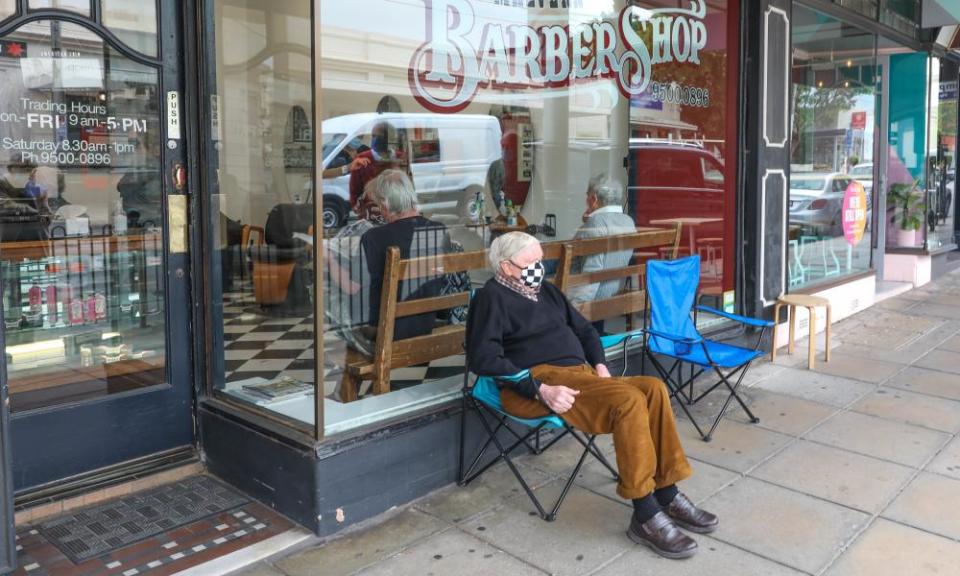What if it comes back? Melbourne's Covid lockdown may be easing but the fear isn't

Nine months in limbo hasn’t given Melbourne the tools to plan for a new future. We don’t know what our “Covid-normal” lives will look like. How can we make plans with the whisper always at the back of our minds: what if it comes back?
With the end in sight, relief is tempered by anxiety. After so long, we have become almost institutionalised in our own homes and many of us will be unsure about leaving them.
Do I still remember how to talk to people? Am I still the person they used to know? Should I feel shame or guilt for being apprehensive about lockdown’s end?
Related: Victoria to conduct covert surveillance of businesses to ensure Covid compliance
There has been a lot of politically partisan shouting about immediate opening. But Melbourne’s lockdown was the longest and harshest in the world – so far. We can’t switch back on as quickly as we switched it all off.
We’d barely finished wiping the bushfire ash from our windows when we were slammed into isolation. All our plans to travel, work towards a promotion, start a new business, join a sports team or begin a new year of study were crushed in an instant. Rebuilding will mean making different plans and we don’t yet know what they should be.
Bereavement is devastating. We knew people who lost jobs, homes and businesses would be shocked and frightened. But the everyday pleasures, they were losses we did not expect to break our hearts.
Trivia night at the local pub. Weekend football. Yoga classes. Theatre. Live music. Friday night drinks. Coffee after school drop-offs. The arts and sports that were the heart’s blood of Melbourne. They vanished at the beginning of lockdown and we still don’t know when all those small events that kept us connected will return.
Staying at home, staying distant from everyone we love, was our only defence
Some of the friendships that depended on shared activities may be gone forever. Others developed out of loneliness and mutual suffering and might not survive the return of (almost) normality.
The few people who escaped Melbourne before the ring of steel came down might come home, but our relationships with them will be different. You weren’t there man, you don’t know!
Who will we lose? Who will come back?
When (if) we’re allowed to return to our workplaces, not everyone will welcome the commutes, expensive lunches and unbroken office hours. Can we pivot from 22 hours at home to 10 hours away from home in a day? Will it take weeks or months to adjust? What if we never do?
Anxiety feeds on what-ifs.

What if we have to lock down again?
Usually, we can alleviate what-if anxiety with the experience that tells us the worst of our imagined scenarios rarely become reality. But no one has experience of this. No one has lived through an entire city locked down for three quarters of a year and then released into a world where the virus still lurks. We have no benchmark, no guide from the past to take us to our future.
It was easy to forget, in our initial five-kilometre bubble, that Melbourne is enormous. Around 5 million people spread out over nearly 10,000 sq kms. It’s even easier to forget that the overwhelming majority obeyed the lockdown rules.
We didn’t like it. Many of us suffered terribly, but we stayed the course. We isolated ourselves from our friends and families and communities. We ignored the mendacious grifters and malevolent buffoons who tried to make political capital from our pain and we stayed at home.
We did it because we were afraid. Staying at home, staying distant from everyone we love, was our only defence against an invisible foe – one that was all the more fearful precisely because we couldn’t see it.
That fear will not easily disappear. How can we hug the people we missed so desperately after such long concentration on masks and social distancing?
And what if it comes back?
Melbourne’s trauma is not over yet.

